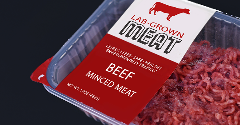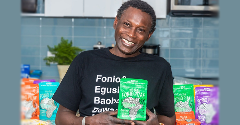News
Eradication may not be the future of the palm oil industry
17 Jun 2020Environmental advocates have been calling for a reevaluation of the palm oil industry for years. While some like the European Palm Oil Alliance are calling for companies to perform mandatory due diligence of their palm oil sourcing, others are calling for the eradication of the oil source. Yet, a new study from Germany’s University of Goettingen and Indonesia’s Bogor Agricultural University says that eradicating the industry entirely may do more harm than good for the environment.
Suddenly implementing a moratorium on worldwide palm oil production will likely lead to increased deforestation and biodiversity loss, according to this new study that synthesizes decades of research done on the environmental and economic impacts of palm oil production.

While deforestation remains rampant in Indonesia and Malaysia, where the majority of the world’s palm oil is produced, other production regions such as Nigeria and Latin America are more likely to be increasing production through expansion on already-converted agricultural lands. Not only that, but the study said the economic repercussions of eradicating the commodity from the world market would be severe.
Most of the land cultivated for palm oil is owned by smallholder farmers who have drastically improved their economic standing thanks to increasing demand for palm oil through the decades. The worldwide acreage used for palm oil cultivation increased over 400% from 12 million acres to 50 million acres between 1980 and 2018.
At the same time that this increase in demand has lifted farmers out of poverty, concerns about increased deforestation remain as farmers develop more land for this intensive monoculture practice, especially in Southeast Asia.
Due to the continuation of this damaging environmental practice, the European Palm Oil Alliance recently called for a mandatory, EU-wide review of company due diligence for sustainable palm oil sourcing. According to Food Navigator, the majority of palm oil in the European Union is already certified sustainable, but 40% in the food and beverage sector remains uncertified. To encourage 100% sustainable sourcing, the alliance is calling for a compulsory regulatory environment for all stakeholders from suppliers to distributors and farmers to FMCG brands.
Finding an avenue to sustainably source this commodity could be beneficial for brands that are reliant on this oil and want to maintain it on their ingredient lists. Not only is palm oil cheaper, but it has a longer shelf life than other options and can stand up to higher-temperature processing than alternatives like rapeseed, soybean and sunflower. Additionally, the output per acre is significantly higher than other oils making it more sustainable to produce per acre than other oil sources.
If companies commit to making their palm oil supply chains sustainable, it could be advantageous not only for them but also for the individual farmers and the economies of palm oil-producing nations.
Related news

Israel approves Aleph Farms’ cell-cultured beef in world first
1 Feb 2024
Israel has granted the first regulatory approval for the commercial sale of cultivated beef, joining the US and Singapore in officially recognising cultivated meat’s role towards protein diversification.
Read more
Fazer and Solar Foods launch snack bar made with air protein
30 Jan 2024
Finnish food manufacturer Fazer has teamed up with foodtech startup Solar Foods to launch a limited-edition snack bar in Singapore made using a novel, carbon-fed microbial protein.
Read more
Big brands invest in precision fermentation-derived palm oil
25 Jan 2024
Although still not approved for food applications, big brands such as Unilever and Doehler are investing in precision fermentation-derived palm oil in a bid to reduce the environmental impact associated with this conventional palm oil.
Read more
Supergrain fonio expands its reach in US market
11 Jan 2024
More US consumers will find nutritious, climate-smart grain fonio in supermarkets thanks to a new distribution structure for the import’s most prominent commercial brand, Yolélé.
Read more
Sustainability meets innovation at Fi Europe 2023's Sustainability Ingredients Zone
9 Jan 2024
Fi Europe’s Sustainable Ingredients Zone showcases ingredients forging a path toward a greener future. Three innovators are redefining what sustainability within the food and beverage industry means, with upcycled products, regenerative agriculture, an...
Read more
Supermarkets innovate with private label plant-based ranges
9 Jan 2024
Plant-based product ranges are an important part of retailers’ private label innovation efforts – and represent an important way for supermarkets to reduce their environmental impact.
Read more
The UK prepares to open food security science centre
2 Jan 2024
Amid global food insecurity, the UK government says it is committed to producing crops resilient to climate change and addressing hunger and malnutrition with a food security science centre.
Read more
Novel food safety platform could eliminate animal testing
21 Dec 2023
The European Food Safety Authority (EFSA) has introduced a new platform that has the potential to eliminate animal testing in the food industry.
Read more
Water-conscious consumers, upcycled food, and tech-driven sustainability: Highlights from Fi Europe, part 2
14 Dec 2023
With climate change becoming a tangible reality, consumers’ environmental concerns are changing. At Fi Europe, market analysts revealed how people are now interested in everyday issues like water shortages and tech-driven solutions such as GM drought-r...
Read more
The food industry’s single-use packaging problem
12 Dec 2023
The food industry’s reliance on single-use packaging is a sustainability “sticking point” with viable alternatives not widely available – but new EU rules mean food businesses will remain responsible for the collection and disposal of the packaging the...
Read more